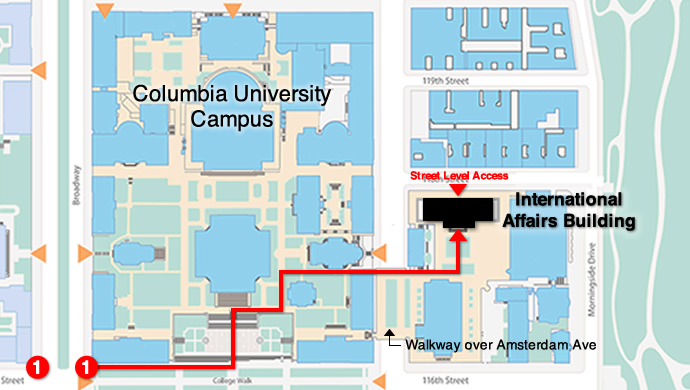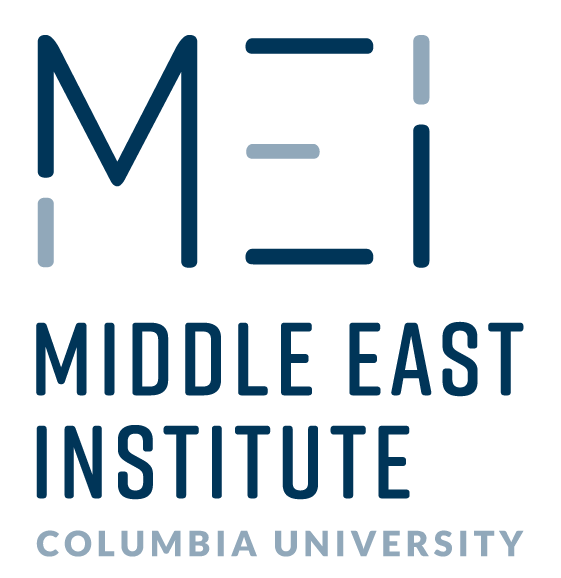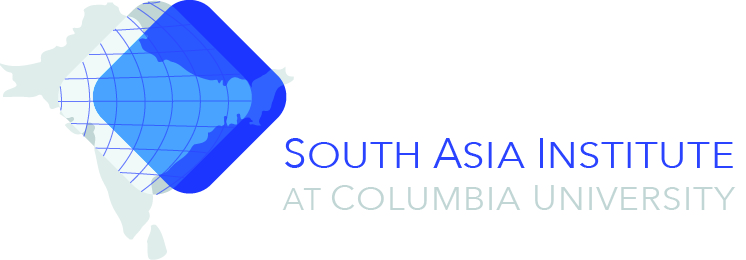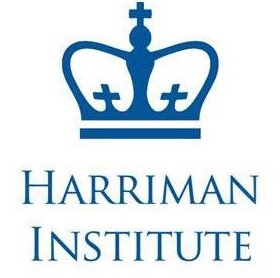Language Education in a Time of Crisis:
Innovation, Adaptation, Transformation
Annual Language Consortium Symposium
May 10-11, 2019
Columbia University
Kellogg Center, 15th Floor, International Affairs Building
Please note: the symposium is now at capacity and is no longer accepting new registrations.
Contact ck2831@columbia.edu for more information.
On May 10-11, 2019, the Consortium for Language Teaching and Learning will host a symposium titled, “Language Education in a Time of Crisis: Innovation, Adaptation, Transformation.” The symposium will address how language programs can and should adapt and innovate to address the challenges posed by the nationwide decrease in language enrollments that has been highlighted by the latest MLA report.
Per Urlaub, Associate Dean of the Language Schools at Middlebury will deliver the opening keynote, and Francis M. Hult, Professor of English at Jönköping University and Director of Studies for English at Lund University, Sweden, will deliver the closing address.
Program
Friday, May 10
School of Public and International Affairs
15th Floor, Kellogg Center
Columbia University
4:00pm - 5:00pm
Check in
Kellogg Center, 15th Floor, 420 W 118th Street
Directions
Directions from 1 Line subway stop at 116th Street

5:00pm - 5:30pm
Welcoming Remarks
Sarah Cole, Dean of Humanities, Parr Professor of English and Comparative Literature, Columbia University
Opening Remarks
Stephane Charitos, Consortium President, 2019-2020
5:30pm - 7:00pm
Keynote Address: Why Do “Best Practices” Fail? Program Innovation Within Institutional Frameworks
Per Urlaub, Associate Dean of Language Schools, Middlebury College
Abstract
In response to the “crisis” in foreign language and literature studies in U.S. higher education, many foreign language departments started trying to reverse devastating enrollment trends by engaging in curricular reform efforts. Some succeeded, many failed.
Those departments who succeeded did so and became leaders in the profession, because they managed to generate and implement approaches that responded intimately to local institutional particularities: the needs of their students, the buy-in of their faculties, and strategic priorities of their administrators. Many of those who failed did so, because they followed. Instead of generating solutions that resonated with local contexts, they copied what was presented to them as so-called “best practices.”
In my presentation, I want to challenge the notion of “best practices” and argue that successful curricular reforms cannot rely on the uncritical adoption of templates that have worked elsewhere. Based on a case study of a curricular reform at the University of Texas at Austin, I will describe institutional contexts and leadership priorities that can empower language and literature faculty to collaboratively generate and implement curricular responses that are original, truly innovative, and – above all — mindful of local particularities and the needs of their students.
Bio
Per Urlaub is an Associate College Professor at Middlebury and he teaches in the Linguistics Program. He also serves as the Associate Dean for Curriculum at the Middlebury Language Schools. He holds a PhD in German from Stanford University, and has taught German Studies, Applied Linguistics, and European Studies in Germany, the UK, and the United States. Before coming to Middlebury in 2017, he was an Associate Professor at the Department of Germanic Studies at the University of Texas at Austin.
7:00pm - 8:00pm
Reception
Kellogg Center Foyer, 15th Floor, 420 W 118th Street
Saturday, May 11
School of Public and International Affairs
15th Floor, Kellogg Center
Columbia University
8:00am - 9:00am
Breakfast
Kellogg Center, 15th Floor, 420 W 118th Street
Directions
Directions from 1 Line subway stop at 116th Street

9:00am - 9:40am
Re-Conceptualizing the Language Education Paradigm in Global Society: Emerging discourse and Change in Language Programs and Classroom Practice
Barbara Spinelli, Senior Lecturer, Department of Italian, Columbia University
Abstract
The mobility processes enabled by globalization have intensified the interconnectedness of communication, information, ideas, and human relationships. Language education is increasingly affected by such global processes, which have a significant impact on language learners’ motivation, investment, and identity. In this presentation, I will first examine how globalization has changed beliefs and conceptions of language education, highlighting the need to reframe traditional pedagogical models and categories to define language teaching and learning. Then, I will explore how these beliefs are embedded in quality standards aimed at providing tools for language programs evaluation. Finally, I will provide examples of experimental practices designed to implement change in second language classrooms.
Bio
Barbara Spinelli is Senior Lecturer in Italian at Columbia University. She worked as Researcher in Educational Linguistics at the University for Foreigners in Perugia, Italy. She collaborated with the Centre for Language Assessment and Certifications as a teacher trainer and language tester. She was involved in research projects promoted by the European Commission and the Council of Europe as language expert. She has published book chapters as well as articles in International research journals. She is the co-author of the Profilo della lingua Italiana: Livelli A1, A2, B1, B2 del QCER (Rizzoli Education). Her main research areas are: Network-based Language Learning, Curriculum Design, Plurilingual andIntercultural Education.
9:40am - 10:20am
Culture, Memory, and Identity: Engaging the City to Transform Language Education in a Diverse, Mobile, and Interconnected World
Lee B. Abraham, Lecturer, Department of Latin American and Iberian Cultures, Columbia University
Abstract
Over the past several decades, we have witnessed a profound shift in emphasis in language pedagogy away from a curriculum that almost exclusively focused on the development of linguistic competencies towards a curriculum that increasingly recognizes the importance of intercultural learning, one in which students critically reflect upon their own linguistic and sociocultural backgrounds while interacting with increasingly multicultural and multilingual communities outside of the classroom.
We have unprecedented opportunities to collaborate within and across departments and institutions to transform language programs in innovative ways so that students actively and meaningfully engage with the histories, cultures, and memories of communities. Such adaptations and innovations can serve as powerful bridges between formal classroom language instruction and meaningful, purposeful engagement with social dimensions of language use and cultural practices beyond the classroom.
This presentation provides examples of language learners’ interactions with urban communities in which they critically examine language use and sociocultural practices. The examples could also be adapted to other types of communities.
Some of the questions that this presentation seeks to address include the following:
- What can students learn from the cultures, histories, and voices of speakers of different languages in cities?
- What can students learn from individual and collective experiences and memories of cities in literature, film, art, architecture, and music?
Ultimately, this presentation aims to demonstrate that when we collaborate to adapt and transform undergraduate language curricula for learning beyond the classroom, students make important and enduring connections in their academic work across courses, semesters, and other disciplines. They often come to realize that meaningful language learning is not only about communication but also that experiences beyond the classroom provide a lens on humanity through which they learn to see and understand themselves, their peers, their communities, and imagine the possibilities for the future.
Bio
Lee B. Abraham is a lecturer in Spanish and serves as Co-Director of the Spanish Language Program in the Department of Latin American and Iberian Cultures at Columbia University. He has taught all levels of undergraduate Spanish courses as well as graduate courses in Spanish language and linguistics. Lee also has served as a language program director of multiple sections and courses in different types of institutions and language departments where he has collaborated with faculty and students to meaningfully integrate language learning beyond the classroom in an increasingly diverse, mobile, and interconnected world.
10:20am - 10:35am
Fifteen Minute Break
10:35am - 11:15am
Humanistic Inquiry as the Ultimate Future-Proofed Skill: An Online General Education Course on Human/Machine Interactions as the Gateway to French Language, Literature, and Culture
Jennifer Gipson, Assistant Professor of French, University of Wisconsin-Madison
Gilles Bousquet, Professor of French, Department Chair, University of Wisconsin-Madison
Abstract
As artificial intelligence (AI) calls us to redefine our own humanity and a global economy makes effective interpersonal and intercultural communication more valuable, how must language departments evolve to meet the needs of a future workforce and informed citizenry? How do we present the value of the humanities and the skill sets they foster to students, the academy at large, and our greater communities? How do we respond employer demands for creativity, analytical thinking, and adaptability that the liberal arts teach–the same skills that colleagues in departments with enrollment growth, like computer sciences, tell us their students need? How can carefully designed general education courses act as a form of outreach or “gateway” course, fostering student interest in the study of language and literature? What is the role of educational technology and online content delivery in this endeavor and what resources does this require? This presentation explores these and other questions meeting an inevitable need for change in our field not with a rhetoric of doom but with a spirit of innovation and a quest for openness and new connections, seeking intellectual and academic collaborations that we believe central to this time of technical and social change. We take the example of a course in development at the University of Wisconsin–Madison Department of French and Italian on human/machine interactions from the French Revolution to the present age of AI.
While this is part of efforts to make a French certificate or major more accessible and interesting to students in rapidly growing fields like computer sciences, it is also positions us for similar collaboration with Health Sciences through global health and simultaneously creates a course that will be open to all students. Instead of telling students the value in what we do, we endeavor to design a course that invites them to experience the relevance of history, literature, and culture. Through timely topics like art and automation, computers and creativity, or machines that murder, students will relate course content to contemporary news, viewed with new perspectives we gain from tracing tropes of human/machine interactions throughout French culture. Technology changes; computer languages change, and more and more tasks are automated. In this light, we frame humanistic inquiry as the ultimate future-proofed skill: being able to imagine social and ethical implications of innovations, ask deep questions, and grapple with nuance and ambiguity. Interpersonal communication and analytical thinking are skills that remain both distinctly human, central to preparing students for a big tech economy, and central to what language departments can offer. If the world of enrollment growth is in STEM, for tactical and for intellectual reasons, we need to create the bridges that will enable STEM students to enter our curriculum and vice versa. We want students with very different background and aspirations actually to “meet” through the class we are proposing and to collaborate, bringing their own respective skills and creativity.
Bio
This project is a collaborative effort between Prof. Gilles Bousquet and Prof. Jennifer Gipson, both experts in nineteenth- and twentieth-century French literature and culture.
Prof. Bousquet is Chair of French and Italian at the University of Wisconsin–Madison and Senior Advisor to the President of the UW System for International Economic Development. He brings strategic perspective and extensive experience coordinating interdisciplinary initiatives and private sector collaborations as a department chair, former dean and vice provost for globalization, director of the French Center of Excellence.
Prof. Gipson, Assistant Professor of French and affiliate faculty in Folklore Studies, brings experience in educational technology, online pedagogies, and training graduate students to teach online as well as passion for creating accessible and inclusive learning environments. She has a proven track record in instructional design and has been responsible for raising enrollments in online, face-to-face, and hybrid folklore, literature in translation, and French courses.
11:15am - 11:55am
ProM: Project Modules for Language and Culture Learning
Angela Lee-Smith, Senior Lector II of Korean, Department of East Asian Languages and Literatures, Yale University
Abstract
ProM, a repository for project modules for teaching language and culture, presents Art, Place, Community, and Multiliteracies-based projects that have been implemented in Korean and/or Spanish language courses at Yale University. Designed based on two major frameworks – The World-Readiness Standards for Learning Languages and the Multiliteracies Approach, each module includes a step-by step to guide for both teachers and students. The global nature of the content and diverse pedagogical approaches make these project modules suitable across languages and levels. The ProM site is intended not only for language faculty at Yale, but for all colleagues in the field of foreign/second/heritage language education.
Bio
Angela Lee-Smith is Senior Lector II of Korean in the Department of East Asian Languages and Literatures at Yale University. She specializes in language pedagogy and materials development for HL/FL learners. She is ACTFL-certified OPI Tester, WPT Rater, and AAPPL Rater in Korean. Her research interests include project-based curriculum design, multiliteracies, and proficiency.
11:55am - 1:30pm
Lunch
Kellogg Center Foyer, 15th Floor, 420 W 118th Street
1:30pm-2:10pm
Leveraging Presence: Rethinking the Affordances of Distance Environments in Language Teaching
Christopher Kaiser, Program Manager, Distance Learning; Columbia University
Abstract
This talk will discuss the emerging opportunities associated with connecting classrooms across distance via videoconferencing technologies. Distance components can be incorporated at different levels: from an individual lesson to an ongoing consortial collaboration for the sharing of enrollments. As language classes adapt to 21st-century challenges, it is important to consider how these new technologies may enrich or enhance the student experience both inside and outside of the classroom.
After discussing some of the areas in which high-quality distance technologies can be fruitfully applied in language learning, I will address some key concepts related to the shared virtual space. The chief obstacle to successful collaboration across distance is students’ and instructors’ underlying assumptions about synchronous video collaboration. Personal experiences with consumer-oriented video conferencing applications will often lead to the belief that no prior training or reflection is necessary, that distance collaboration means using Skype or Facetime, and that the virtual space construed by these applications is determined rather than contingent. In reality, there is a range of strategies for connecting via distance, each with different affordances and drawbacks, and these choices, when guided by stated pedagogical outcomes and supplemented with sufficient training, can be adapted and configured in ways that are significantly more productive and versatile than the “default setting.” Especially important in this iterative process is the concept of “presence;” which in this talk will refer to the subjective condition of understanding the emotions, intentions, and expectations of the remote interlocutor(s).
In the final portion of my presentation, I will discuss some of the concrete lessons from the Shared Course Initiative (SCI), a distance collaboration which since 2012 has used high-definition videoconferencing to connect less commonly taught language classrooms between Columbia, Cornell, and Yale.
Bio
Christopher Kaiser is the Program Manager of the Shared Course Initiative, which connects less commonly taught language classrooms at Columbia, Cornell, and Yale using high-definition videoconferencing. His areas of interest include second language pedagogy, distance learning, presence in the distance environment, inter-institutional collaboration, and language-learning advocacy.
2:10pm - 2:50pm
An Ecological Approach to Advocacy: The Wisconsin Language Roadmap Initiative
Dianna Murphy, Director, Language Institute; University of Wisconsin-Madison
Abstract
Bio
Dianna Murphy is director of the Language Institute at the University of Wisconsin-Madison, where she is also associate director of the Russian Flagship Program, executive director of the Korean Flagship program, and a core member of the Doctoral Program in Second Language Acquisition. She is also co-director of the federally funded Wisconsin Language Roadmap Initiative and an associate director of the Flagship Culture Initiative at the University of Maryland.
2:50pm - 3:00pm
Ten Minute Break
3:00pm - 4:30pm
Closing Address: Marketing or Selling out? Walking the Line in Language Program Recruiting and Retention
Francis M. Hult, Professor, School of Education and Communication, Jönköping University, Sweden
Abstract
Most language programs face economic pressures—whether to generate revenue for the institution or simply to stay in the black to avoid the existential threat of closure or reduction. The common denominator is the commodification of students. Programs need good enrollment numbers to bring in registration money and good retention to keep the money flowing over time. These are not the reasons most of us chose to enter the language profession. Nonetheless, we find ourselves in the position of needing to market and promote our programs, convincing students to enroll and to stay enrolled. The responsibility falls especially on program leadership but on instructors as well.
To promote our programs, we imagine the reasons that potential students might find language study compelling and then create marketing materials: brochures, posters, e-mail announcements, presentations, inter alia. In doing so, we walk the line of neoliberalism in higher education, balancing between economic imperatives and intellectual benefits (Hadley, 2015; Holborow, 2012; Misiaszek et al., 2012). We may often invoke a language as resource orientation (Hult & Hornberger, 2016; Ruiz, 1984), but even then there are tensions we must navigate between the kinds of resources we are selling: cultural access, intellectual richness, identity building, heritage connections, and communicative repertoire enhancement on the one hand and national security, economic benefits, and internationalization on the other hand. Which ones do we foreground, when, and why? What marketing strategies do we consider acceptable? How close to the neoliberal edge are we comfortable walking? (Hult, 2018).
I take up these questions, drawing upon my own experience with managing program recruiting and retention in both the United States and Sweden. I examine initiatives I have developed and materials I have created or been involved in creating, reflecting on how I have walked the line.
References
Hadley, G. (2015). English for academic purposes in neoliberal universities: A critical grounded theory. Cham, Switzerland: Springer.
Holborow, M. (2012). Neoliberal keywords and the contradictions of an ideology. In D. Block, J. Gray, & M. Holborow, Neoliberalism and applied linguistics (pp. 33-55). London: Routledge.
Hult, F.M. (2018). Foreign language education policy on the horizon. Foreign Language Annals, 51, 35-45.
Hult, F.M., & Hornberger, N.H. (2016). Re-visiting orientations to language planning: Problem, right, and resource. Bilingual Review/La revista bilingüe, 33(3), 30-49.
Misiaszek, G.W., Jones, L.I., & Torres, C.A. (2012). Selling out academia? Higher education, economic crises, and Freire’s generative themes. In B. Pusser, K. Kempner, S. Marginson, & I. Ordorika (Eds.), Universities and the public sphere: Knowledge creation and state building in the era of globalization (pp. 179-196). London: Routledge.
Petrovic, J.E. (2005). The conservative restoration and neoliberal defenses of bilingual
education. Language Policy, 4, 395-416.
Ricento, T. (2005). Problems with the ‘language-as-resource’ discourse in the promotion of
heritage languages in the U.S.A. Journal of Sociolinguistics, 9(3), 348-368.
Ruiz, R. (1984). Orientations in language planning. NABE Journal, 8, 15-34.
Bio
Francis M. Hult works at the crossroads of education, sociolinguistics, and discourse studies. He is known for his discourse analytic research about the sociopolitics of national language policies, language teacher engagement with educational policies, and the visual use of language in multilingual communities. Professor Hult has lectured widely on these topics in Asia, Europe, and North America. He is currently a professor at the Jönköping University School of Education and Communication as well as director of studies for English at Lund University where he also coordinates the English teacher education program. His recent books include Research Methods in Language Policy and Planning (with Johnson) and Language Policy and Language Acquisition Planning (with Siiner and Kupisch).
Language Education in a Time of Crisis is co-sponsored by:
The Consortium for Language Teaching and Learning
The Columbia University Language Resource Center
Columbia University Faculty of Arts and Sciences
Columbia College
Department of East Asian Languages and Cultures
Department of French and Romance Philology
Department of Germanic Languages
Department of Italian
Department of Latin American and Iberian Cultures
Department of Middle Eastern, South Asian, and African Studies
Department of Slavic Languages
American Language Program
East Central European Center
Institute for Comparative Literature and Society
Institute of Latin American Studies
Program in Hellenic Studies




